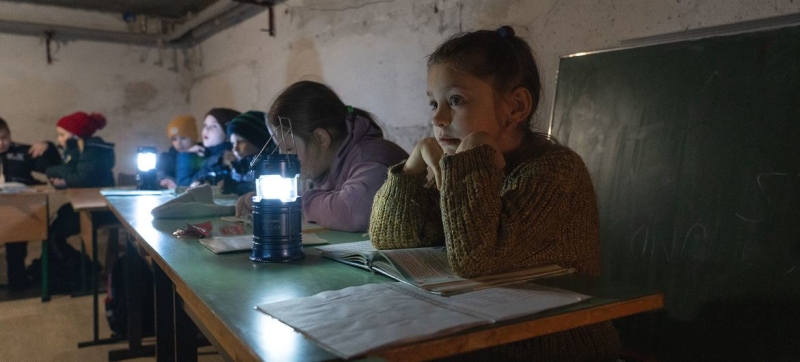
Children in Borodyanka, Ukraine, study in a bomb shelter. Global education crisis: the world is short of 44 million teachers Culture and education
Without decisive action to address the global education crisis, we will not achieve a safer, more sustainable and more equitable world, UN Secretary-General António Guterres said Thursday at the opening of a special event on transforming education.
The meeting, held as part of the High-Level Political Forum on Sustainable Development, is dedicated to progress made since the 2022 Education Transformation Summit, and to mobilizing action and investment.
Gaps in education systems
According to the UN Secretary General, almost two years after the Education Transformation Summit, this area remains in a state of crisis. Without dramatic changes in the way the world views this issue, we will not be able to create a more peaceful, sustainable and just global society, he said.
The Secretary-General cited disappointing data : About 84 million children are estimated to be out of school by 2030. In addition to improving access to education for more students, issues with the quality of education also need to be addressed. For example, about 70 percent of ten-year-old children in sub-Saharan Africa cannot read simple text, the UN chief noted. Additionally, gaps remain due to the COVID-19 pandemic, which has led to record levels of school closures and learning loss for an entire generation.
Last year, the investment gap to achieve quality education for all (SDG 4) in developing countries stood at $100 billion annually, according to UNESCO. Also, according to the Secretary General, 40 percent of the world’s population lives in countries where governments spend more on servicing external debt than on education or health care.
Secretary General’s Plan
“Today, ahead of September’s Future Summit, November’s Global Education Meeting and major summits on social development and financing for development next year, I propose a four-point plan to address the global crisis in education,” Guterres said.
The first point of the plan is to close the funding gap. Secondly, gaps in access to learning need to be closed, in particular for migrants, people with disabilities and other marginalized groups. The Secretary-General’s third proposal is to expand support for teachers, an estimated 44 million of whom are in short supply worldwide.
Finally, the UN chief believes that “the time has come for a revolution in ourselves.” education systems.” According to him, it is necessary to reconsider how, what and when the inhabitants of the planet study. Critical thinking, digital technologies and lifelong learning must be at the center of education systems.
Read also:
